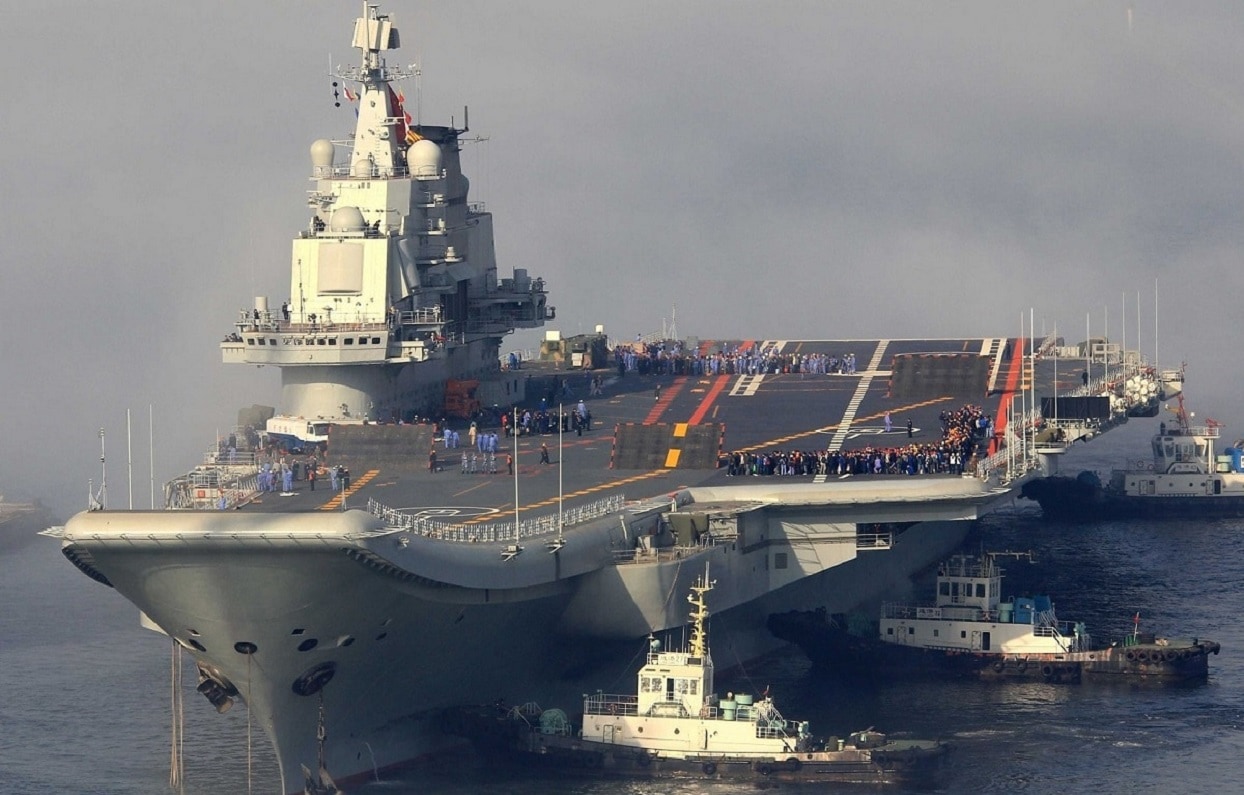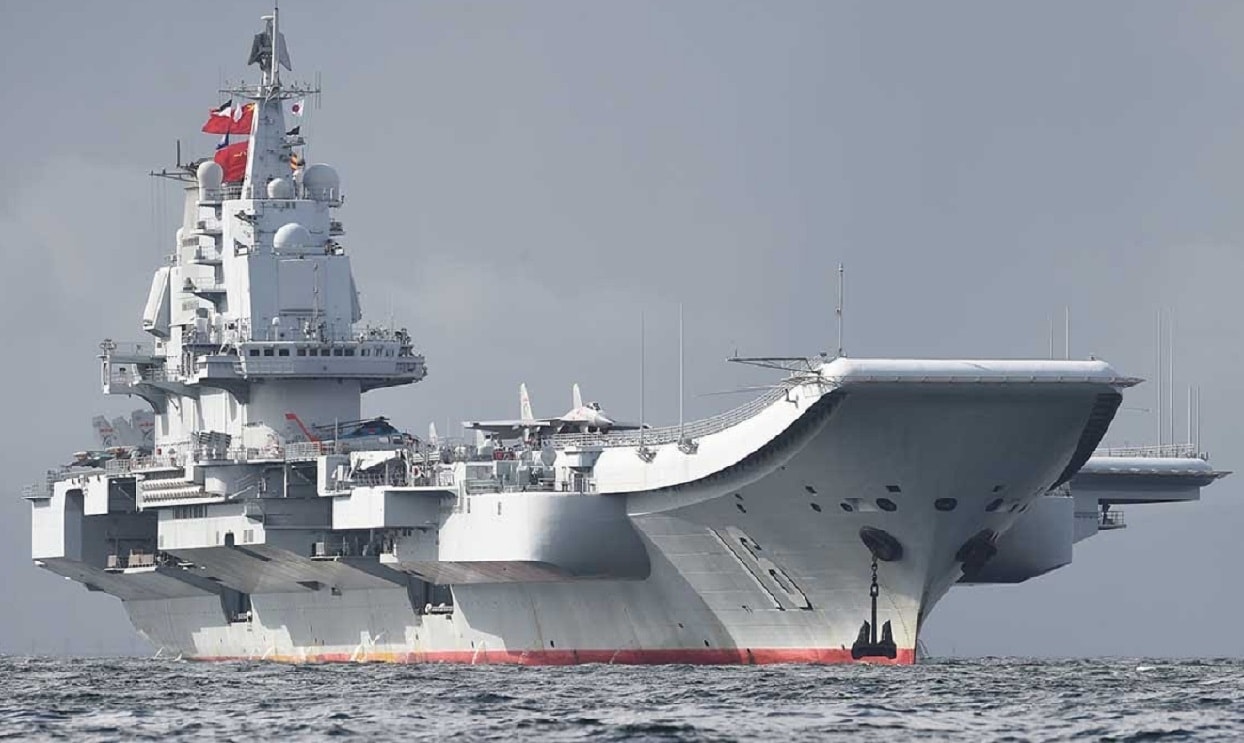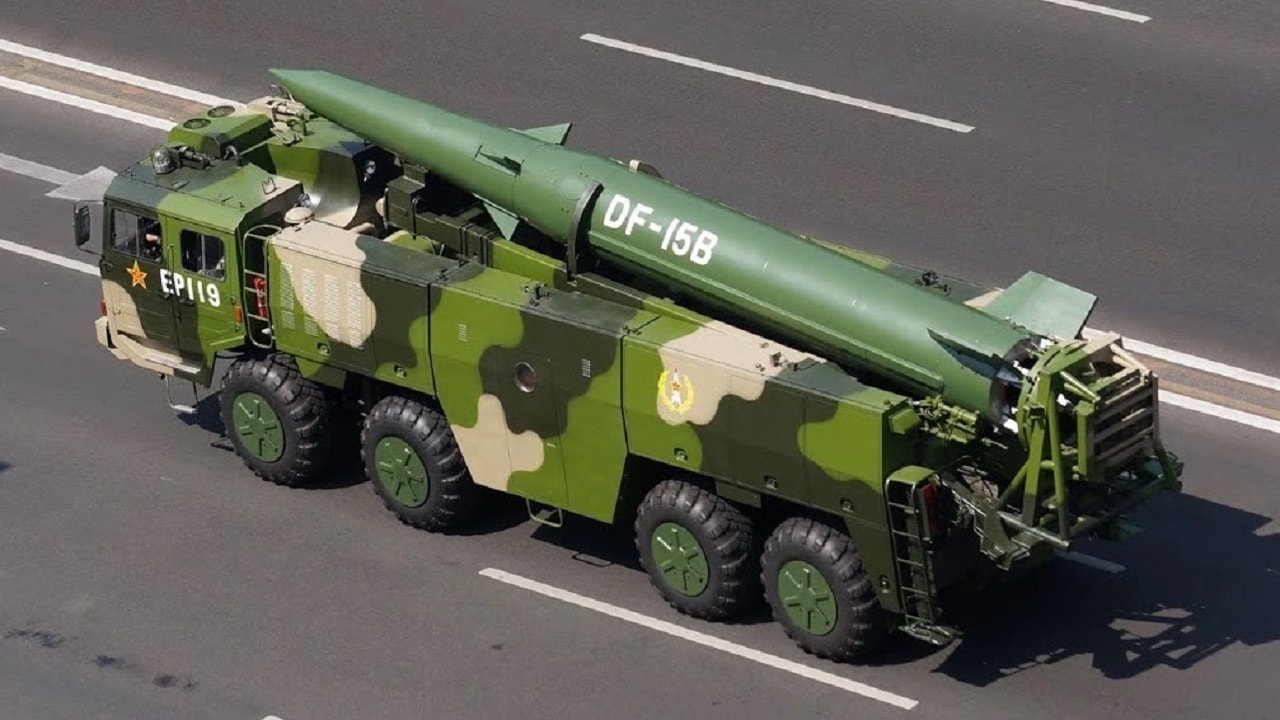Key Points: China’s three aircraft carriers raise questions about their necessity, especially given its strategic focus on domestic issues and regional dominance.
-Guided by Sun Tzu’s principle of “winning without firing a shot,” China could maintain the status quo in East Asia without additional carriers.
-Critics argue that these carriers are more for regional green-water operations than global blue-water ambitions, as China’s military history reflects a defensive posture.
-With Taiwan as its primary concern and no evidence of aspirations for world domination, China’s aircraft carrier program may reflect defensive realism rather than offensive expansionism, challenging assumptions about Beijing’s global military objectives.
Does China Even Need Aircraft Carriers?
One question that few are asking about the potential of war between the United States and China is this: Does the People’s Liberation Army Navy (PLAN) even need aircraft carriers to win the fight?
This is a curious question because most defense analysts take it for granted that rising powers need to match the United States tit for tat when it comes to arming themselves. This is what international relations theorists call “self-help.”
More International Relations Theory
There is also the “Thucydides Trap” concept which posits that a rising power obsessed with self-help will eventually fight an established power that has a bigger army, navy, and air force. This would explain why most people just assume that China has an “offensive realist” strategy (yet another international relations term). Offensive realism means that China does not accept the current balance of power versus the United States – Beijing instead wants to change the balance of power to its clear advantage. Going on the offense is better than the defense, in this construct.
Winning Without Firing a Shot
This would explain why China has three aircraft carriers to project power and create military gain. However, there is also Sun Tzu to consider, and this Chinese sage still drives the country’s strategic culture. A critical tenet from Sun Tzu is winning without firing a shot. This would mean that any aircraft carrier for the Chinese is above and beyond what they should build, and it violates the principle of restraint in Chinese foreign policy.

STRAIT OF MALACCA (June 18, 2021) The Navy’s only forward-deployed aircraft carrier USS Ronald Reagan (CVN 76) transits the South China Sea with the Arleigh Burke-class guided missile destroyer USS Halsey (DDG 97) and the Ticonderoga-class guided-missile cruiser USS Shiloh (CG 67). Reagan is part of Task Force 70/Carrier Strike Group 5, conducting underway operations in support of a free and open Indo-Pacific. (U.S. Navy Photo by Mass Communication Specialist 1st Class Rawad Madanat)
Keep the Focus on Domestic Concerns
China also likes to focus on domestic concerns rather than foreign policy. I paraphrase the following Chinese mantra: “Stick to your homework before joining a party.” China has many domestic problems—demographic challenges, the need to grow the economy and create jobs, fighting pollution, importing energy, squelching democracy, maintaining order, fighting corruption, just to name a few. Foreign policy should be on the back burner. That means building expensive aircraft carriers should also be on the back burner.
Maintain the Status Quo
This raises the question concerning the mission of an aircraft carrier for China. Is it for offensive or defensive purposes? I talked about offensive realism already, but what about “defensive realism” in which China would want to simply maintain the existing military balance versus the United States. This assumes that China is not an aggressive global power but is merely sticking to its knitting in East Asia to keep the status quo.
Not Necessarily and Blue Water Navy
Many observers assume that since the Chinese have aircraft carriers and want more that they desire to have a global Blue Water navy instead of a regional Green Water navy, that they are aggressive when it comes to Taiwan, and that they even want to export their system of government to other lands and spread communism like the Soviet Union.
Even with the three carriers, I still posit that China will have a regional Green Water navy in the coming years. They have one overseas base in Djibouti and a fledgling port in Gwadar, Pakistan. That is not enough to maintain, fuel, supply, and feed a global navy.

Image: Chinese Internet.
Taiwan is China’s Biggest Strategic Concern
However, they are definitely aggressive about Taiwan. The Chinese look at Taiwan the same way the United States regards Hawaii. If the Americans would have lost Hawaii to Japan in World War Two and it still remained independent and friendly with the Japanese, the United States would be furious and do everything to reclaim it. But does China need more aircraft carriers to re-claim Taiwan? Three is probably enough.
No Yearning for World Domination or Exporting the Chinese System
That leaves the belief that China wants to export Communism and re-make the world order in its vision for a Marxist-Leninist system that has elements of authoritarian capitalism. That is not really a part of Chinese strategic culture either and most of Chinese military history has consisted of defending its borders, not attacking rival nations (except for an aborted conflict with Vietnam in 1979). The Chinese Communist Party is quite firm in its belief that the Chinese governmental system cannot be exported. The Middle Kingdom is unique and exceptional, and its government would not work in other countries.

Image: Creative Commons.
So, if China has no plans to expand and take over other nations (except for Taiwan), it shouldn’t need aircraft carriers at all. Let’s not take it for granted that the PLAN wants to take over the world with its three flat-tops. If China is more concerned with domestic concerns rather than foreign policy, then it may decide to stop building carriers and remain satisfied with a regional navy. Therefore, the United States and its allies can come to the realization that China’s three aircraft carriers do not necessarily mean a path to world domination by Beijing. Meanwhile, China may not even need an aircraft carrier in the first place.
About the Author: Dr. Brent M. Eastwood
Brent M. Eastwood, PhD, is the author of Don’t Turn Your Back On the World: a Conservative Foreign Policy and Humans, Machines, and Data: Future Trends in Warfare, plus two other books. Brent was the founder and CEO of a tech firm that predicted world events using artificial intelligence. He served as a legislative fellow for U.S. Senator Tim Scott and advised the senator on defense and foreign policy issues. He has taught at American University, George Washington University, and George Mason University. Brent is a former U.S. Army Infantry officer. He can be followed on X @BMEastwood.

